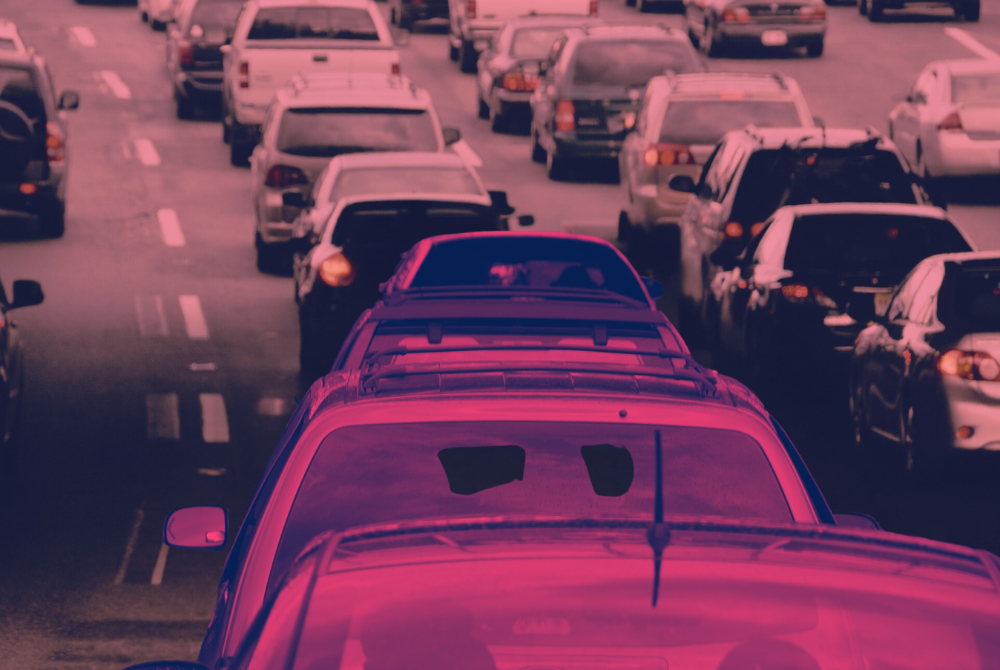Traffic congestion a never-ending issue
In reality, urban areas and traffic congestion are issues that are never-ending, regardless of how advanced the country is.
WAN IZAR HAIZAN
London has clinched the top spot in the Global Traffic Scorecard 2022 as the city with the highest traffic congestion, followed by Chicago, Paris, Boston, and New York.
In 2022, a driver in the United Kingdom (UK) is estimated to have lost 156 hours stuck in traffic. This is nearly twice as long as Bangkok, which recorded an average time of 86 hours.
It is stated that UK drivers also lose £1,377 (RM8,200) in potential earnings due to the traffic congestion issue.
Many countries have implemented car-sharing campaigns (hitchhiking and carpooling) to reduce vehicles on the road.
The United States (US) in 1973 once provided special lanes for 'high-occupancy vehicles'.
The aim was to encourage residents to share rides. In order to access these special lanes, drivers would offer their vehicles for anyone to ride along.
Poland, in the past, also provided vouchers for the public who wanted to use carpool services. They could reserve any vehicle for a ride and pay for the service using vouchers.
More interestingly, in Cuba, traffic police dressed in yellow, known as Amarillos, patrol the entry and exit roads of its main cities to help the public find vehicles to ride along.
Amarillos stop drivers who have empty spaces in their vehicles. Subsequently, these drivers are asked to pick up passengers heading in the same direction.
Nowadays, carpooling is losing popularity. The UK government, which once seriously considered mandating carpooling, has withdrawn its proposal.
For example, in London, the approach used is to reduce private vehicle movements, especially in crowded areas, through a congestion charge system. Private vehicles just for a stroll in London are now expensive.
Not only are parking fees expensive, ranging from £5 to £7 per hour (RM30-RM42 per hour), but there are also additional charges.
Vehicles entering areas designated as Congestion Zones between 7am and 6pm on weekdays and 12 noon to 6pm on weekends are charged £15 (RM90) per day.
If the payment is overdue by a day, the charge increases to £17.50 (RM105). Not just that, there are also areas designated as Low Emission Zone (LEZ) and Ultra Low Emission Zone (ULEZ).
Old vehicles with inefficient power engines and high carbon emissions are charged £12.50 per day. Most of them are vehicles registered before January 2006.
Strangely, despite so many charges, London continues to face the same problem. The high ownership of private vehicles is often cited as the cause of congestion in the city.
However, this may not be entirely accurate. For example, private vehicle ownership in the UK is 491 vehicles per 1,000 people. This figure is much lower than Sweden (545) and Denmark (540), which rarely face road congestion problems.
In Copenhagen, Denmark, for instance, the trend of cycling became popular in the early 1900s. However, with a strengthening economy, the ability to own private vehicles also increased.
Car ownership became higher, and cycling on the roads became very risky. It was only after the 1973 world oil crisis that they realised the importance of returning to cycling. The government was urged to provide a bicycle-friendly road system.
Now, with increasingly narrow motor vehicle lanes, half of Copenhagen's population chooses to cycle for commuting.
More interestingly, journalist Jirka Pasz, who has written extensively about his cycling experiences, found that Copenhagen residents themselves acknowledge that because of their daily cycling routine, their lives are now much happier.
In reality, urban areas and traffic congestion are issues that are never-ending, regardless of how advanced the country is.
What is certain is that expanding road and highway networks to reduce traffic congestion has never been listed as their preferred solution.
*Wan Izar Haizan is a PhD student at the Environmental Policy Centre, Imperial College London. She is a novelist with the pen name Michiko Ohara. The views expressed in this article are the author's own and do not necessarily reflect those of Sinar Daily.










